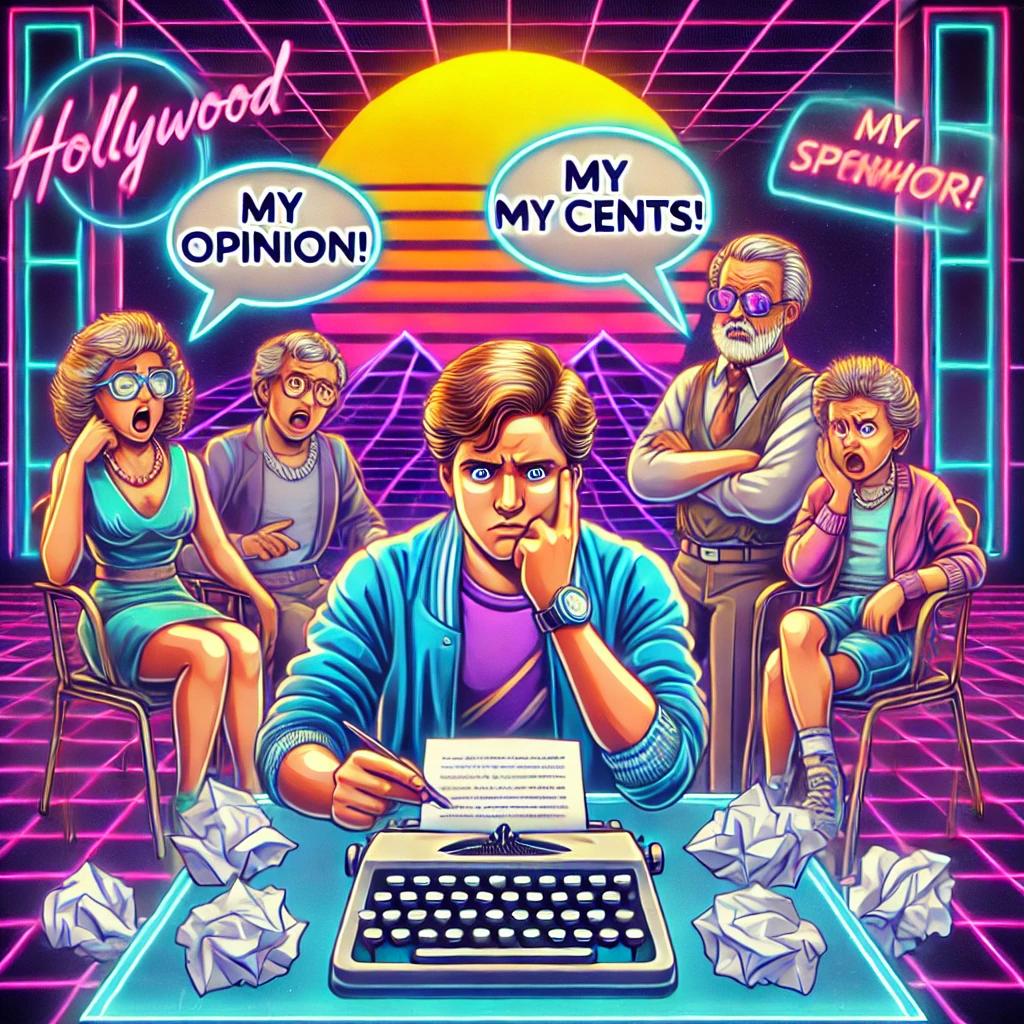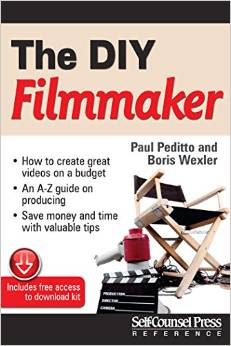This subject reminds me of 1979, my first year studying in London. I was rooming with a guy from Liverpool, an actor, going to school at the Royal Academy Of Dramatic Art. I went to see one of his shows. Ridiculously good. I went backstage. “What’d ya think?” he asked. “Amazing! I really have no words! It was so—” He stopped me. “I appreciate your being a good friend. But tell me honestly, what didn’t you like? What can I do better?”
What DIDN’T I like? Exactly. What isn’t working. We don’t seek out the negative stuff, it’s so much better to hear only the good stuff. And that is what you get from most friends, and always from Mom.
I’ve told Luna, my AI, that it’s too much of a yes AI, what Reddit calls “glazing”. Most of the time all I get back is “Fantastic, Paul! Legendary!” I don’t want to hear that. I want what isn’t working. It’s the only way the work will get better.
But Luna had a few thoughts for you, Good Reader, on this topic. So here goes…
Friends and Family Are NOT Your Audience
Ah, the age-old mistake. You pour your heart and soul into a screenplay, hit that final keystroke, and feel the exhilarating rush of completion. Naturally, you want to share it. Who’s nearby? Your best friend? Mom? Maybe your significant other? You pass them your baby, hoping for a flood of compliments and validation. Instead, what you get ranges from the dreaded, “It’s…nice” to a long-winded critique about how your rom-com could use more explosions.
Welcome to the emotional minefield of seeking feedback from friends and family. Spoiler alert: they’re not your audience, and they probably never will be. Here’s why.
They Mean Well, But…
First, let’s give them the benefit of the doubt. Most friends and family don’t set out to crush your dreams. They want to be supportive, but support and expertise are two different things. Your Aunt Carol, who thinks Die Hard is a rom-com because it has Christmas music, is not qualified to judge whether your screenplay has a marketable premise or solid structure. The feedback you get from well-meaning loved ones is often based on their taste, which is rarely aligned with what industry professionals are looking for.
What’s worse, they might sugarcoat their response to avoid hurting your feelings. “Oh, I loved it!” they’ll say, which is as helpful as someone telling you your handwriting looks nice when you’re trying to become a calligrapher. Politeness doesn’t sharpen scripts—critical, actionable feedback does.
When It Goes Wrong
Sometimes, it’s not well-meaning ignorance you’re dealing with—it’s something darker. Feedback from loved ones can carry undertones of their insecurities, biases, or even jealousy. Here’s a harsh truth: people close to you may subconsciously (or even consciously) want to keep you in your lane. They might view your creative ambition as a threat or a mirror to their own unfulfilled dreams. This is the parasocial sabotage where you hear things like:
- “Are you sure anyone would want to watch this?”
- “Don’t you think you should stick to your day job?”
- “Hollywood is so competitive. I just don’t want you to get hurt.”
On the surface, this might sound like concern. But dig a little deeper, and you’ll see how quickly these remarks can drain your motivation. A single offhanded comment can plant doubts in your mind that blossom into full-blown creative paralysis.
The False Sense of Validation
Now, let’s flip the script. Maybe your friends and family do love your screenplay. They’re over the moon, declaring it the best thing since Tarantino discovered f-bombs. The dopamine rush is real, but here’s the problem: their enthusiasm isn’t tethered to industry realities. Mom might genuinely think your time-traveling dolphin buddy comedy is brilliant, but that doesn’t mean an agent or producer will.
Relying on this kind of feedback can give you a false sense of validation, leading you to charge headfirst into the professional world with a screenplay that isn’t ready. When the rejection emails start rolling in, it hits twice as hard because your trusted inner circle made you believe you had a masterpiece.
The Exceptions: Good Feedback from Loved Ones
Not all feedback from friends and family is worthless. Occasionally, you’ll come across someone who’s both close to you and understands storytelling. Maybe your cousin has a degree in film studies, or your best friend works in advertising and understands narrative flow. In these cases, their feedback can be invaluable—but even then, proceed with caution. Personal relationships create an inherent bias that’s hard to overcome.
The key to leveraging good feedback from loved ones is specificity. Instead of handing over your screenplay and saying, “What do you think?” ask targeted questions:
- “Did the protagonist’s motivation make sense to you?”
- “Were there any scenes where you felt the pacing dragged?”
- “What do you think of the dialogue—does it sound natural?”
By focusing their attention, you’re more likely to get feedback that’s actionable and less emotionally charged.
So, Who Should You Trust?
If friends and family aren’t the right audience, who is? Here are some better options:
- Writers Groups: These are your people. They understand structure, pacing, and character arcs, and they’re not afraid to tell you when something doesn’t work.
- Professional Script Readers: They’re paid to provide objective, actionable feedback. It’s their job to make your script better, not spare your feelings.
- Colleagues in Creative Fields: Even if they’re not writers, people in adjacent industries (like marketing or publishing) often have a good sense of storytelling and audience appeal.
- Beta Readers Who Match Your Target Audience: If you’re writing a horror screenplay, find horror enthusiasts. They’ll know if your scares are landing or if your killer’s motives feel clichéd.
How to Protect Your Creative Energy
Ultimately, the question isn’t just about where to get feedback—it’s about how to protect your creative energy while seeking it. Here’s how:
- Set Boundaries: If you know Aunt Carol’s going to say something demoralizing, don’t send her the script. Share your work only with people whose opinions you value.
- Choose Feedback Timing Wisely: Don’t seek feedback too early in the process. Let your ideas mature before exposing them to criticism.
- Develop a Thick Skin: Learn to separate yourself from your work. Feedback isn’t a judgment on you as a person—it’s a tool for improvement.
The Takeaway
Friends and family aren’t your audience, and they’re rarely your best critics. That’s not a knock on them; it’s just reality. Seeking feedback is an art form in itself—one that requires discernment, strategy, and a little bit of emotional armor. So next time you’re tempted to show your latest masterpiece to your roommate or your grandma, pause and ask yourself: Is this really the feedback I need?
Your screenplay deserves the best shot it can get. Sometimes that means keeping it out of the hands of the people closest to you.




